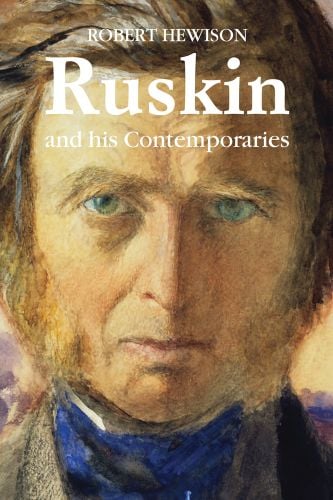
Ruskin and His Contemporaries
- A dazzling collection examining artist, critic and radical John Ruskin’s life and work in his 19th-century world and milieu, and extensively proving his continued relevance
In celebration of the 200th anniversary of the birth of one of Victorian Britain’s greatest thinkers, the art critic and social reformer John Ruskin, the distinguished Ruskinian Robert Hewison introduces Ruskin’s ideas and values through revelatory studies of the people and issues that shaped his thought, and the ideas and values that in turn were shaped by his writings and personality. Beginning with an exploration of the rich tradition of European art that stimulated his imagination, and to which he responded in his own skilful drawings, Ruskin and his Contemporaries follows the uniquely visual dimension of his thinking from the aesthetic, religious and political foundations laid by his parents to his difficult personal and critical relationship with Turner, and his encounters with the art and architecture of Venice. Victor Hugo makes a surprising appearance as Ruskin develops his ideas on the relationship between art and society. Ruskin’s role as a contemporary art critic is explored in two chapters on Holman Hunt, one focussing on the Pre-Raphaelite’s The Awakening Conscience, one examining his later Triumph of the Innocents. The development of Ruskin’s role as a social critic is traced through his teaching at the London Workingmen’s College and his foundation of the Guild of St George, a reforming society that continues to this day. Oscar Wilde came under his personal influence, as did Octavia Hill, a founder of the National Trust. The evolutionary theories of Charles Darwin are shown to have been deeply unsettling to Ruskin’s worldview. The book concludes with a demonstration of the profound influence of the Paradise Myth on all of Ruskin’s writings, followed by an exploration of the concept of cultural value that shows why Ruskin’s ruling principle: ‘There is no wealth but Life’ is as relevant to the 21st century as it was to the 19th.
- Publisher
- Pallas Athene
- ISBN
- 9781843681687
- Published
- 10th Apr 2023
- Binding
- Paperback / softback
- Territory
- World
- Size
- 217 mm x 145 mm
- Pages
- 448 Pages
- Illustrations
- 20 color, 43 b&w
Distributed by ACC Art Books
Our Catalogues
Please log-in or create an account to see your recent items.